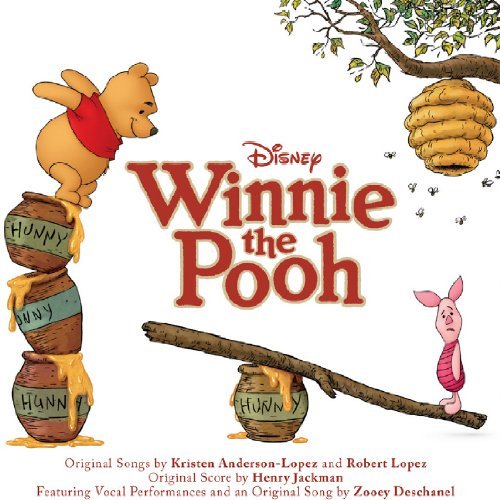As children, we’re all taught not to judge a book by its cover or some other variety of the cliched saying. But there’s another equally well-worn expression we’ve been fed about how every rule isn’t without it’s exception. In the case of Zooey Deschanel’s new track, featuring M. Ward and curiously not billed as She & Him in spite of the fact the song is identical to the rest of the beloved pair’s tandem work, this conundrum feels especially relevant.
There are two different sides of “So Long” to be examined. The first side is the most obvious one: the song was recorded as the theme for Disney’s new Winnie the Pooh installment. As such, it’s about as perfect of a fit as you can get. By now, all of Deschanel’s best musical qualities are commonly known. She’s sugary sweet (y’know, like the very honey Pooh so lusts after), delicate, and charming like no other indie heartthrob before her. The music she makes, either individually or as one half of She & Him, is essentially her self portrait set to guitars. Each and every song she makes is fueled by the same whimsical innocence. “So Long” is no different and, as a result, is the perfect song for it’s intended purpose. It’s a poppy little romp about laughing and assorted merriment that should make for the ideal companion to a movie we all watched growing up that was equally full of assorted merriment (excluding Eeyore, that old grump).
But then there’s that other side. As an individual unit, “So Long” is mostly an uninteresting endeavor. Sure, the lines about dotting I’s and crossing T’s sound cute against Ward’s jangly half-riffs in the background, but it’s almost overwhelmingly derivative. The fluffy hand claps, the little jolts of piano – this is either She & Him at their best if you’re a fan, or at their worst if you’ve reached the point of over-saturation with the two-piece. Like most soundtrack fare, Deschanel has basically taken all the elements she’s known for and recycled them. The song itself isn’t bad, it just doesn’t feel like anything we haven’t already heard a bunch of times already.
But that’s where the two conflicting messages we all received as children come in. If we’re not judging books by their covers, then we aren’t taking into account that this song is for a Winnie the Pooh flick. Right? But that’s a cover that simply can’t be ignored — it’s the exception to our rule — and so, looking at the full landscape, the song couldn’t really be any more perfect. Still, it’s hard to set all those years of life lessons about judging things based on their truest substance aside and fully appreciate it at true value.

